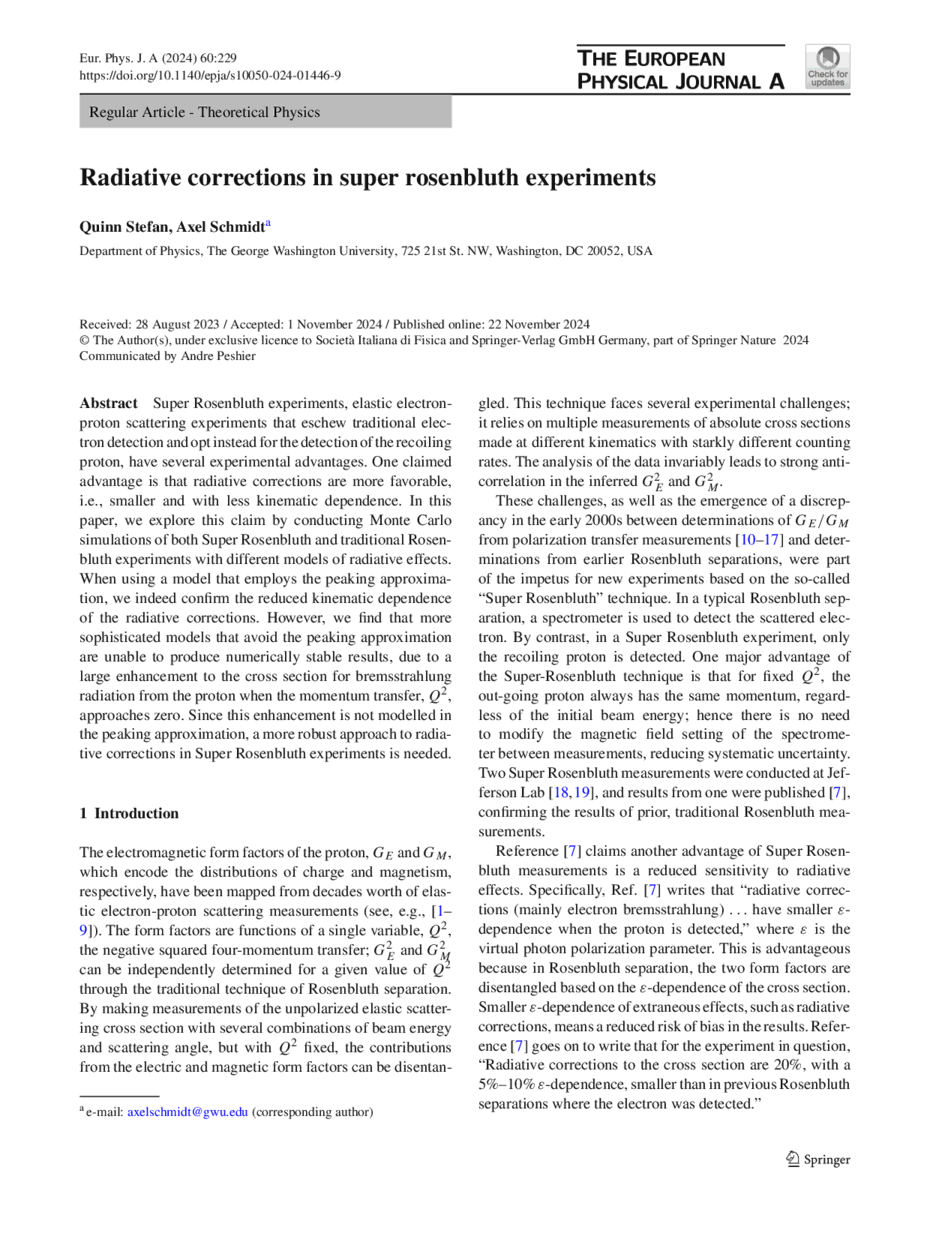https://doi.org/10.1140/epja/s10050-024-01446-9
Regular Article - Theoretical Physics
Radiative corrections in super rosenbluth experiments
Department of Physics, The George Washington University, 725 21st St. NW, 20052, Washington, DC, USA
Received:
28
August
2023
Accepted:
1
November
2024
Published online:
22
November
2024
Super Rosenbluth experiments, elastic electron-proton scattering experiments that eschew traditional electron detection and opt instead for the detection of the recoiling proton, have several experimental advantages. One claimed advantage is that radiative corrections are more favorable, i.e., smaller and with less kinematic dependence. In this paper, we explore this claim by conducting Monte Carlo simulations of both Super Rosenbluth and traditional Rosenbluth experiments with different models of radiative effects. When using a model that employs the peaking approximation, we indeed confirm the reduced kinematic dependence of the radiative corrections. However, we find that more sophisticated models that avoid the peaking approximation are unable to produce numerically stable results, due to a large enhancement to the cross section for bremsstrahlung radiation from the proton when the momentum transfer,  , approaches zero. Since this enhancement is not modelled in the peaking approximation, a more robust approach to radiative corrections in Super Rosenbluth experiments is needed.
, approaches zero. Since this enhancement is not modelled in the peaking approximation, a more robust approach to radiative corrections in Super Rosenbluth experiments is needed.
Copyright comment Springer Nature or its licensor (e.g. a society or other partner) holds exclusive rights to this article under a publishing agreement with the author(s) or other rightsholder(s); author self-archiving of the accepted manuscript version of this article is solely governed by the terms of such publishing agreement and applicable law.
© The Author(s), under exclusive licence to Società Italiana di Fisica and Springer-Verlag GmbH Germany, part of Springer Nature 2024
Springer Nature or its licensor (e.g. a society or other partner) holds exclusive rights to this article under a publishing agreement with the author(s) or other rightsholder(s); author self-archiving of the accepted manuscript version of this article is solely governed by the terms of such publishing agreement and applicable law.





